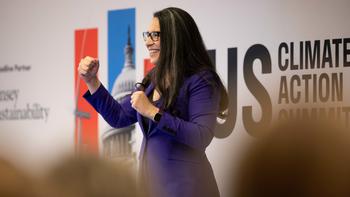‘Could AI unravel the complex issue of rare diseases?’ asks health systems researcher Dr Andreas Amrein
‘Rare’ diseases are more common than you think, with more than 7,000 unique conditions affecting around eight percent of Australians.
As a collective group, these often life-threatening or chronically debilitating conditions can have a vast and devastating impact.
“Most are genetic conditions with no cure and limited treatments that are only designed to mitigate the impact on a patient’s life,” Dr Amrein said.
“Not all rare diseases affect life expectancy, but they lead to physical, emotional and psychosocial limitations impacting not only the patient, but also their family, social and professional network.”
Dr Amrein, Vice President (Rare and Specialty Care) at Takeda Europe based in Switzerland, has completed post-graduate research through the University of Southern Queensland on the complications involved in rare disease treatments worldwide.
The project explored how various groups, such as medical professionals, regulatory bodies, pharmaceutical companies, government, etc, could overcome issues such as costly treatment development.
“My primary finding is that the challenge is complex and involves multiple stakeholders with divergent priorities. So much can and needs to be done,” Dr Amrein said.
“Pharmaceutical companies usually make decisions on which drugs to pursue and continue to develop, based on rigorous analysis of data generated from randomized clinical trials that involve large numbers of patients.
“Orphan drugs, however, are developed to treat rare diseases where patient populations are very limited and often not yet diagnosed and therefore identified.
“By broadening the data collection to real life conditions, including quality of life and health economics, we can potentially bridge that gap and gain more holistic insights that will help us make better therapeutic, reimbursement and drug development decisions.”
According to Dr Amrein, this is where artificial intelligence could play a role.
“Collecting real world data seems to be the only viable way to obtain long-term information to understand the genuine impact on the overall healthcare and wider economic systems,” he said.
“One way forward could be to utilise new technologies such as artificial technology to collect, collate, analyse and help to interpret the vast data needed to properly gauge the impact and needs linked to rare diseases, so we can rapidly develop more and more effective therapies.
“Rare disease patients and their families are counting on us.”







